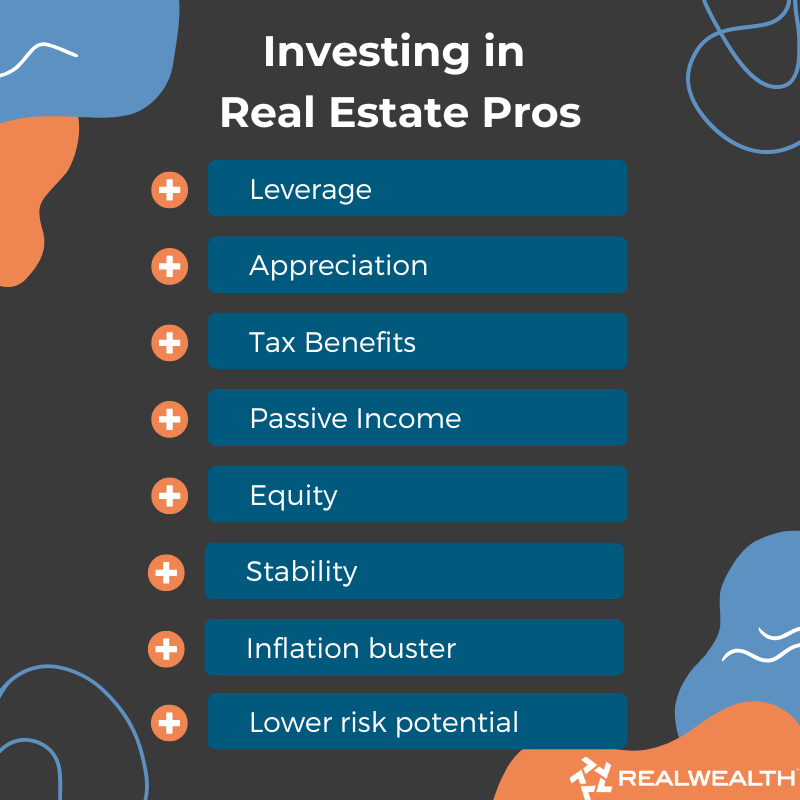Investing in real estate has long been a cornerstone of financial stability for individuals and institutions alike. Tangible assets like property offer a sense of security and predictability that can be elusive in more volatile markets. As economic uncertainty continues to affect global markets, putting money into real estate can provide a steady foundation for one’s financial portfolio. With various options ranging from residential to commercial properties, investors can choose the path that best aligns with their financial goals and risk tolerance, making real estate a versatile and attractive investment opportunity.
Why Real Estate Investing Offers Stability in Uncertain Markets
Investing in real estate can provide a sense of stability and security in uncertain economic times. Unlike other investment vehicles, such as stocks or bonds, real estate is a tangible asset that can provide a steady stream of income through rental yields or property appreciation. This stability is particularly attractive to investors who are looking to diversify their portfolios and reduce their exposure to market volatility.
Benefits of Real Estate Investing
Real estate investing offers a range of benefits, including passive income generation, capital appreciation, and tax benefits. Rental properties can provide a steady stream of income through rental yields, while also appreciating in value over time. Additionally, real estate investors can take advantage of tax deductions on mortgage interest, property taxes, and operating expenses.
Types of Real Estate Investments
There are several types of real estate investments available, including residential properties, commercial properties, and real estate investment trusts (REITs). Residential properties can provide a steady stream of rental income, while commercial properties can offer higher yields through lease agreements with businesses. REITs, on the other hand, allow investors to invest in a diversified portfolio of properties without directly managing them.
Key Considerations for Real Estate Investors
Before investing in real estate, it’s essential to consider several key factors, including location, property type, and market conditions. Investors should research the local market to understand the demand for rental properties or the potential for capital appreciation. They should also consider the property’s condition, management requirements, and potential for renovation or redevelopment.
 El Reto del Caramelo: el challenge viral que conquistó TikTok, Instagram y YouTube
El Reto del Caramelo: el challenge viral que conquistó TikTok, Instagram y YouTube| Investment Type | Benefits | Risks |
|---|---|---|
| Residential Properties | Steady rental income, capital appreciation | Property management responsibilities, tenant vacancies |
| Commercial Properties | Higher yields, long-term lease agreements | Higher upfront costs, tenant credit risk |
| REITs | Diversified portfolio, professional management | Market volatility, management fees |
Benefits of Investing in Real Estate for Long-Term Stability
Investing in real estate can provide a sense of security and stability in one’s financial portfolio, as it is a tangible asset that can appreciate in value over time and generate passive income through rental yields.
Reducing Risk through Diversification
By investing in real estate, individuals can diversify their investment portfolios, reducing their reliance on volatile stock markets and other risky assets, thereby minimizing the overall risk of their investments.
Generating Passive Income
Rental properties can provide a steady stream of passive income, as tenants pay rent on a regular basis, allowing investors to benefit from a predictable and stable source of cash flow.
Long-Term Appreciation
Real estate values tend to appreciate over the long-term, making it a potentially lucrative investment opportunity for those who are willing to hold onto their properties for an extended period, benefiting from the capital appreciation.
Tax Benefits
Investing in real estate can also provide tax benefits, such as deductions for mortgage interest and property taxes, which can help to reduce an investor’s tax liability and increase their overall returns.
 El Reto del Yate: lujo, aspiración y la fantasía viral que dominó las redes sociales
El Reto del Yate: lujo, aspiración y la fantasía viral que dominó las redes socialesPhysical Asset Control
One of the key advantages of investing in real estate is that it provides investors with a high degree of control over their assets, allowing them to make decisions about property management and maintenance, and to directly influence the value of their investments.
Frequently Asked Questions
What are the benefits of investing in real estate for stability?
Investing in real estate for stability offers several benefits, including a steady income stream, potential long-term appreciation in property value, and a hedge against inflation. Real estate investments can also provide a tangible asset and a sense of security, making it a popular choice for those seeking stability in their investment portfolio.
How does real estate investing reduce financial risk?
Real estate investing can reduce financial risk by diversifying a portfolio and providing a relatively stable source of returns. By investing in real estate, individuals can spread their risk across different asset classes, reducing their reliance on stocks and bonds. This diversification can help to mitigate potential losses and provide a more stable financial foundation.
What types of real estate investments are considered stable?
Stable real estate investments typically include income-generating properties such as rental properties, real estate investment trusts (REITs), and real estate mutual funds. These investments provide a regular income stream and are often less volatile than other types of real estate investments. They are also generally more liquid, making it easier to buy and sell shares.
Is investing in real estate for stability suitable for all investors?
Investing in real estate for stability may not be suitable for all investors, particularly those with a short-term investment horizon or a high-risk tolerance. Real estate investments often require a significant upfront investment and can be illiquid, making it difficult to quickly sell a property. However, for long-term investors seeking stability, real estate can be a viable and attractive option.
 El Reto Rosa Neón: la estética viral que convirtió el color en protagonista absoluto de las redes sociales
El Reto Rosa Neón: la estética viral que convirtió el color en protagonista absoluto de las redes sociales
